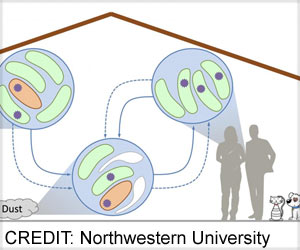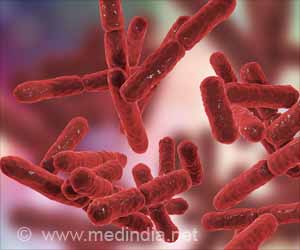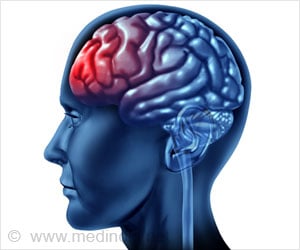The main goal of World Antimicrobial Awareness Week is to enhance knowledge and comprehension of drug resistance.
- To combat antimicrobial resistance, the World Health Organization (WHO) supports a global antimicrobial resistance action plan, which also serves as the impetus for World Antibiotic Awareness Week
- To prevent the emergence and spread of antibiotic resistance, seeks to raise awareness of worldwide antibiotic resistance
- World Antimicrobial Awareness Week is being observed to promote best practices among the public, healthcare professionals, and policymakers in the use of antibiotics
World Antimicrobial Awareness Week
Go to source). WHO described the problem as “New resistance mechanisms are emerging and spreading globally, threatening our ability to treat common infectious diseases. A growing list of infections- such as pneumonia, tuberculosis, blood poisoning, gonorrhea, and foodborne diseases - are becoming harder, and sometimes impossible, to treat as antibiotics become less effective.”
At the 68th World Health Assembly in May 2015, a global action plan was approved to combat the escalating issue of antibiotic and other antimicrobial medication resistance. The main goal is to enhance knowledge and comprehension of antimicrobial resistance through effective communication, education, and training (1✔ ✔Trusted Source
World Antimicrobial Awareness Week
Go to source).
Read More..
Aim of World Antimicrobial Awareness Week
The World Antimicrobial Awareness Week (WAAW) campaign aims to raise AMR awareness and comprehension among the public, health stakeholders, and policymakers to prevent the introduction and spread of AMR.‘Preventing Antimicrobial Resistance Together’ is the theme of WAAW this year. All healthcare sectors should support the responsible use of antibiotics and develop antimicrobial resistance prevention strategies by cooperating in a One Health framework (1✔ ✔Trusted Source
World Antimicrobial Awareness Week
Go to source).
Combating Antimicrobial Resistance
Threatened by antimicrobial resistance, people, animals, plants, and the environment are all at risk. Because of this, the theme for this year encourages cross-sector cooperation to maintain the efficacy of these vital medications. Fighting antimicrobial resistance requires a One Health approach since it is a global endeavor (2✔ ✔Trusted SourceWorld Antimicrobial Awareness Week 2022
Go to source).
To combat global antibiotic resistance, WHO established five aims, including improving awareness, stepping up monitoring and research, lowering infection rates, making the best use of antibiotics, and committing to ‘sustainable investment.’
To effectively combat antimicrobial resistance, all sectors must work together and promote preventive measures for the responsible use of antimicrobials. To lessen the need for antimicrobials and prevent the emergence and spread of antimicrobial resistance, it is essential to strengthen infection prevention and control in healthcare facilities, farms, and food industry premises, ensure access to vaccines, clean water, sanitation, and hygiene, implement best practices in food and agriculture production, and ensure the sound management of waste and wastewater from key sectors (3✔ ✔Trusted Source
World Antimicrobial Awareness Week
Go to source).
Importance of World Antibiotic Day
It serves as a reminder that we work together with our medical providers
While it's simple to believe that our doctors should be responsible for maintaining our health, the reality is that we are ultimately responsible for our own wellbeing. That entails being aware of the right times to seek medical attention so that we may go armed with the information, details, and inquiries needed to diagnose our condition and recommend the best course of action.
It Raises Awareness of a Global Health Problem
It is important that we educate ourselves on antimicrobial resistance. Ask your doctor why this antibiotic is appropriate for your specific ailment if this week just so happens to be the week you visit the doctor and receive a prescription for one. What outcomes are possible and how long will it take?
It Motivates us to Review the Fundamentals of Antibiotics
Many individuals are unaware that antibiotics only work against bacteria and cannot treat viruses. (This is why there is still no treatment for the virus-based common cold.) Therefore, if your doctor says you have a virus-type disease, resist the urge to ask for an antibiotic prescription because it could not be of any assistance to you. (There might be some exceptions; talk to your doctor about it.)
Observing World Antibiotic Awareness Week
Teach Children How to Avoid Bacterial Diseases
The best defense against antibiotic resistance is to avoid illnesses in the first place. The golden rule of cleanliness is to wash your hands often, clean and bandage any cuts or scrapes, and avoid contact with ill family members. Even if it seems common sense to keep your home clean and take steps when you prepare food properly, this week is a fantastic time to be reminded to be especially careful!(3✔ ✔Trusted Source
World Antimicrobial Awareness Week
Go to source)
Learn About Foods that Contain Antibiotic Properties
“Let thy food be thy medicine, and thy medicine be thy food,” advised the Greek physician Hippocrates. Fruits and vegetables typically include high levels of vitamin C , a disease preventative that boosts your immune system and lowers infection rates. Allicin, a substance having antibacterial and antifungal qualities, is abundant in the Allium family of plants, which includes garlic, onions, shallots, and chives. Honey has been utilized as an antibacterial agent for more than 2000 years, particularly when coupled with cinnamon. To be safe, consult your physician, naturopath, or nutritionist before making any dietary changes.
Develop Your happiness
Did you realize that your whole health can be influenced by your mood? It is well accepted that people who are content are less likely to contract bacterial infections and other ailments. When they do become sick, they recover significantly more fast as well. So, this week, let’s all concentrate on doing activities that bring us joy, whether that means dancing around the house, belting out karaoke tunes, or simply going on a long walk to take in the fall foliage.
References:
- World Antimicrobial Awareness Week - (https://www.who.int/campaigns/world-antimicrobial-awareness-week/2022)
- World Antimicrobial Awareness Week 2022 - (https://www.unep.org/events/unep-event/world-antimicrobial-awareness-week-2022)
- World Antimicrobial Awareness Week - (https://www.woah.org/en/event/world-antimicrobial-awareness-week-2022/)
Source-Medindia











